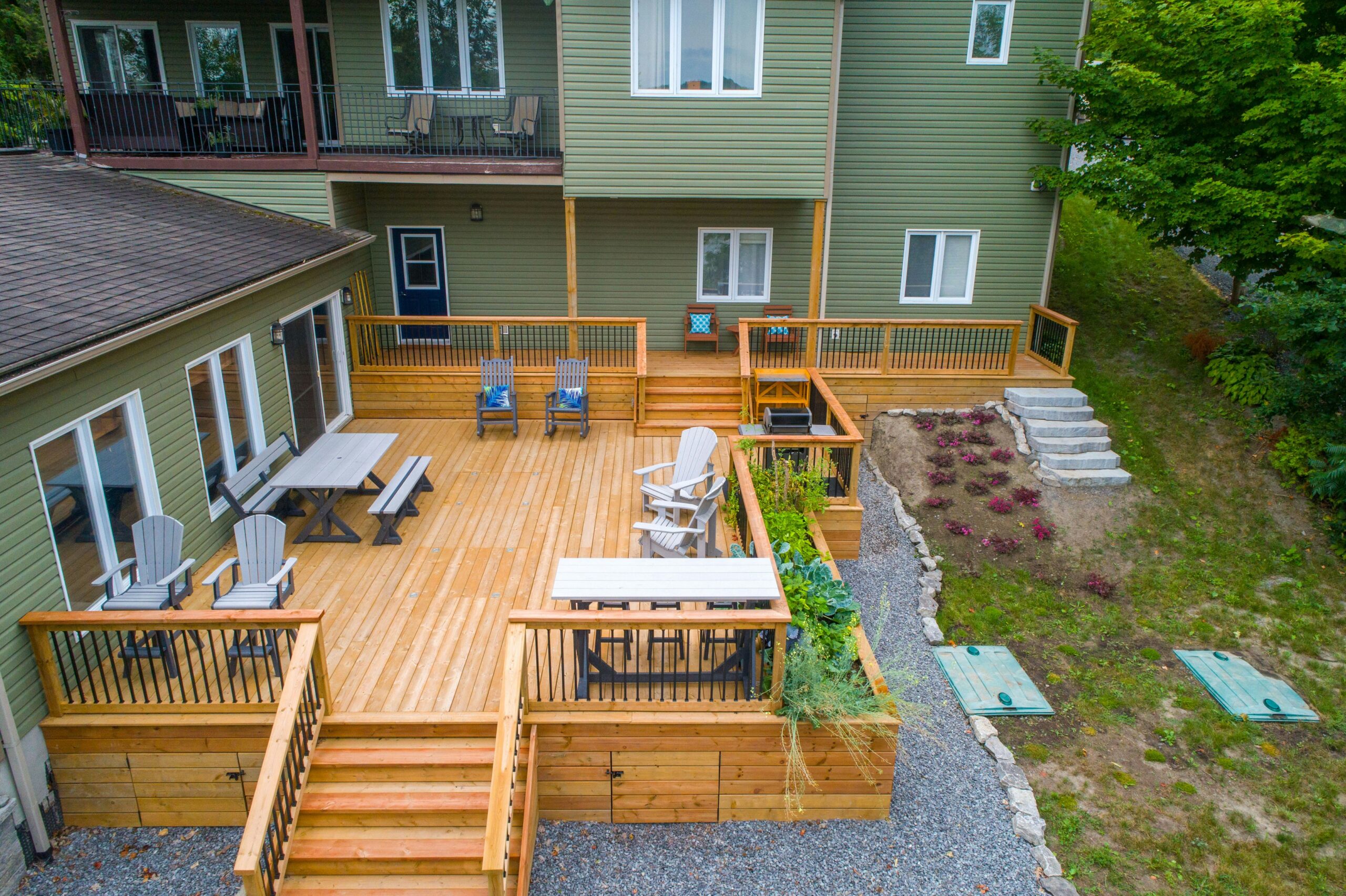If you’re thinking about home improvements, you might be wondering whether adding a deck is a good investment. After all, making changes to your home can be expensive, and you want to be sure you’re making decisions that will pay off down the road. The good news is that, in many cases, building a deck can increase the value of your home. But how much value does it really add, and is it the right choice for you? Let’s break down the benefits and things to consider when deciding if adding a deck is worth it.
Boosting Curb Appeal and Usability
One of the most obvious advantages of adding a deck is the immediate boost in curb appeal. A well-designed deck adds character and charm to your home, making it more inviting for visitors or potential buyers. More importantly, it creates extra outdoor living space where you and your family can relax, entertain, and enjoy time outside.
Whether you like to host backyard barbecues, sip your morning coffee in the sun, or simply have a quiet place to unwind, a deck makes your home more enjoyable. It offers a seamless transition between indoor and outdoor living, which is especially appealing during nice weather. The extra space can make even a modest home feel much larger.
Financial Value and ROI
From a financial perspective, many homeowners want to know how much return on investment (ROI) they can expect from building a deck. While exact numbers can vary depending on factors like location, deck size, materials used, and current real estate trends, studies have shown that decks generally offer a solid return.
On average, you can expect to recoup about 70-80% of your initial investment when you sell your home. For example, if you spend $10,000 building a deck, it could potentially add $7,000 to $8,000 to your home’s value. Of course, this is just an estimate, and the actual ROI may be higher or lower depending on the specifics of your project and local market conditions.
Choosing the Right Materials
One of the key factors that will affect both the cost and value of your deck is the material you choose. There are several options available, each with its pros and cons:
- Pressure-treated wood is one of the most affordable choices and is a popular option for many homeowners. It’s durable and can withstand the elements, but it does require regular maintenance like staining and sealing to keep it in good condition.
- Composite decking is a more expensive option but comes with the advantage of being low-maintenance. It’s made from a mix of wood fibers and plastic, making it resistant to rot, warping, and insects. Over time, its durability and minimal upkeep may make it a more cost-effective choice.
- Cedar or redwood are natural wood options that are prized for their beauty and resistance to decay. However, they tend to be more expensive upfront and still require some maintenance to preserve their appearance.
The material you choose will have an impact on how much value your deck adds to your home, as well as how much enjoyment you get out of it while you’re living there.
Consider Your Location
Your location also plays a significant role in determining how much value a deck can add to your home. In regions with milder climates, where outdoor living spaces can be used year-round, decks are highly desirable. Homes in areas with harsh winters or extreme heat may not see as much use from a deck, which could reduce its perceived value to potential buyers.
Additionally, if you live in a neighborhood where decks are common, adding one could help your home stay competitive with others on the market. On the other hand, if decks are rare in your area, you may want to consider whether it’s a feature buyers will be excited about.
Maintenance Matters
Before committing to a deck, it’s important to think about the ongoing maintenance involved. A deck, especially one made of wood, will need regular upkeep to stay in good shape. This includes cleaning, sealing, staining, and inspecting for damage. If you’re willing to put in the effort to maintain it, your deck will not only look great but also last for many years. However, if you prefer something more hands-off, materials like composite decking may be a better fit.
Should You Add a Deck?
Ultimately, deciding whether to add a deck to your home comes down to your specific situation. If you’re looking for a project that will enhance your outdoor living space, increase your home’s appeal, and offer a solid return on investment, a deck is a great option. Just be sure to consider factors like your budget, material choices, location, and long-term maintenance.
For homeowners who love spending time outdoors, the value of a deck goes beyond just dollars and cents. It provides a place to make memories, enjoy nature, and entertain loved ones. And if you do decide to sell, a well-maintained deck can be a big selling point that sets your home apart from the rest.
In conclusion, adding a deck can be a smart investment for both your enjoyment and your home’s value—just make sure to do your research and plan carefully to get the most out of your new outdoor space.

